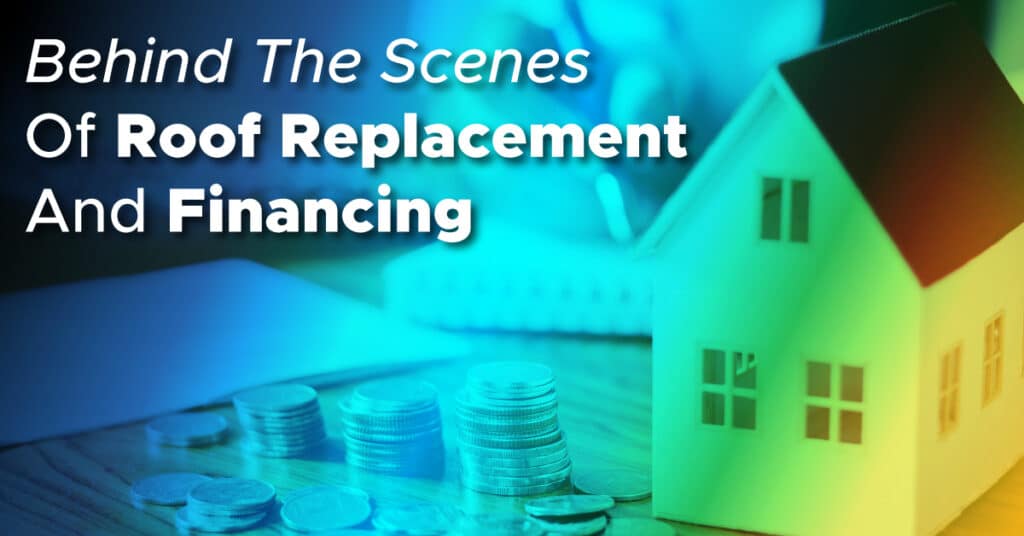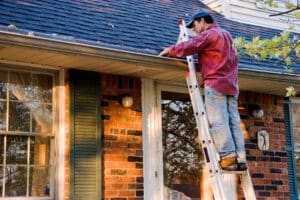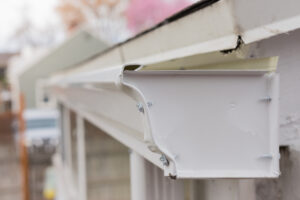No homeowner wants to find out they need a new roof. While keeping up with routine roof maintenance can extend the lifespan of your roof and keep it secure for years to come, there will inevitably come a day when your roof must be replaced. When the day finally arrives, you’ll surely have a lot of questions. For many homeowners, one of the biggest questions is about roof replacement financing. “How can I finance my roof replacement?” is a common concern among homeowners. At Adam Vaillancourt Roofing, we’re here to provide answers.
Roof Replacement and Your Taxes
First off, we get asked all the time about how roof replacement impacts your taxes. Can you write off a new roof? What about repairs? The answers to these questions depend on a lot of factors. Assuming the home that needs a roof replacement is your primary residence—the rules are a little different for rental properties—here’s how your taxes will be affected.
Can You Deduct Roof Replacement?
The simplest answer to this question is, unfortunately, no. Roof replacement is considered a home improvement by the IRS, and home improvements are not tax deductible.
However, there can still be long-term tax benefits to replacing your roof. Even though you can’t deduct the cost of your roof replacement in the same year you spent the money, it might save you some money when the time comes to sell your house.
What is Capital Improvement?
Any home improvement that adds value to your home or extends its life is considered a capital improvement. Examples might include installing a new HVAC, finishing the basement, or—you guessed it—replacing your roof. Keeping track of capital improvements may reduce the amount of taxes you pay later on when you sell your home.
Whether or not capital improvements will impact your taxes depends partly on how much money you’ve put into your home, and how this number compares with the sale price. It also might depend on how long you’ve lived there since the first $250,000 of profit on the sale of your primary residence is already tax-free for single filers (it’s the first $500,000 of profit for married couples).
In any case, it’s worth hanging onto the receipts for your roof replacement and any other capital improvements you make, just in case. If there’s even a small chance it can reduce the taxes when you sell your house, why not allow yourself to save some money?
Financing Your Roof Replacement
If you’re unsure of how you’ll be able to pay for your roof replacement, rest assured there are options out there that can help. You should not have to pay for your new roof upfront and out of pocket if you are not able to do so, and financing should never stand between you and a new roof.
Weigh Your Financing Options
Seeking financing for a roof replacement can seem daunting, especially if you have low credit or little to no credit history. There are a variety of loans available which can help homeowners finance a roof replacement. Be sure to weigh your options carefully.
For many homeowners, FHA Title I Loans are a great resource. These loans are backed by the Federal Housing Authority and are specifically designed for home improvements such as roof replacement. Others can finance their roof replacement through a credit card or by opening up a Home Equity Line of Credit (HELOC).
It’s also important to remember you can and should shop around before committing to any loan. Talk to multiple lenders and lending institutions to find financing with terms and conditions that work for you. There’s a good chance you could save by not settling for the first financing option you find.
Talk to Your Roofers
Your roofing company may be able to offer you additional financing options. This is one of the reasons it’s so important to choose your roofing contractors carefully, and only work with a company that puts the needs of their customers first. A great roofing company’s reputation is based on fairness, quality work, and above all, communication. You should always be able to ask your contractors any questions you may have, including questions about financing.
Many roofing companies offer in-house financing, and most have partnerships with lenders who make financing much simpler and easier to obtain. You may even be able to save money by working with lenders your roofing company connects you with, rather than taking your chances with another lender.
Contact us today to learn more about working with Adam Vaillancourt Roofing for all your roof repair and replacement needs. We’ve become a leader in the roofing business throughout Southern New Hampshire and Northern Massachusetts through quality workmanship and dedication to our customers.




